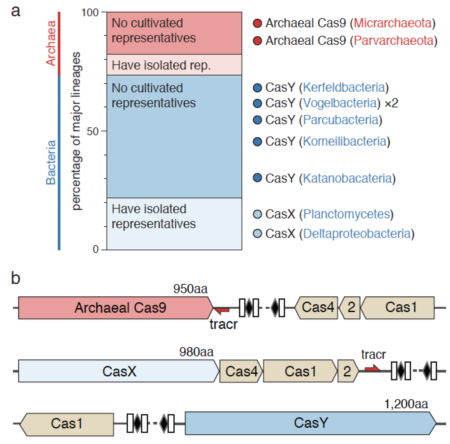
a) Lineages with and without isolated representatives, and the scale of little investigated biology. b) Locus organization of the discovered systems
Scientific Achievement
Novel genomes reconstructed from metagenomes were shown to encode previously unknown CRISPR-Cas systems with potential for genome editing.
Significance and Impact
The new genome-editing systems are among the most compact yet identified. The systems are currently being developed as alternatives to the Cas9-based system.
Research Details
- An extensive set of genomes reconstructed largely in DOE funded research was searched for novel gene clusters adjacent to CRISPR arrays.
- Two candidate systems, CasX and CasY, were tested in interference assays
- Novel archaeal genomes were shown to contain the first Cas9-based loci from this domain of life
Citation
Burstein, D.; Harrington, L. B.; Strutt, S. C.; Probst, A. J.; Anantharaman, K.; Thomas, B. C.; Doudna, J. A.; Banfield, J. F. (2017), New CRISPR–Cas systems from uncultivated microbes, Nature, 542(7640), 237-241 DOI: 10.1038/nature21059.
